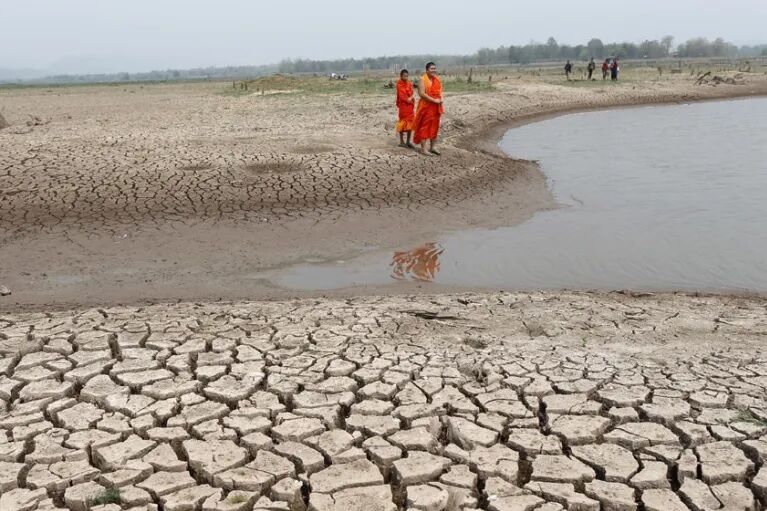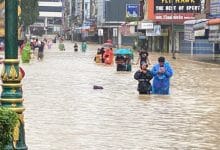Severe drought crisis looms in Nakhon Ratchasima with water reservoirs depleting

Nakhon Ratchasima province faces a severe drought crisis, with medium-sized water reservoirs at worrying levels, holding less than half their capacity. A halt on off-season rice farming has been ordered and urgent discussions are underway to secure water reserves throughout this year’s dry season.
The Nakhon Ratchasima Irrigation Project’s water allocation division today reported on the water situation in the province’s reservoirs. It was found that the four large reservoirs have less than 60% of their water remaining. Only the Lam Phra Phloeng reservoir in Pak Thong Chai district has 67.32% of its water remaining, which is expected to suffice for domestic use this year.
However, the situation for farmers is of concern. The irrigation project has convened a meeting with water user groups. They have requested cooperation from farmers in the areas downstream of the reservoir to stop off-season rice farming, as the water quantity is not sufficient and must be reserved for use throughout this year’s dry season.
The real worry is the many medium-sized reservoirs located in several districts of Nakhon Ratchasima province, which have less than 50% of their water remaining. The lowest is Lam Phra Phloeng Reservoir in Pak Thong Chai District with 2.557 million cubic metres or 29.39%. Furthermore, the reservoirs in Sida district, which has three medium-sized reservoirs, also have less than 50% of their water remaining. Huay Hin Reservoir has 35.18%, Huay Toei has 39.99%, and Lam Plai Mat has 44.52%.
Another important medium-sized reservoir is Huay Bong reservoir in the Prasuk subdistrict, Chum Phuang district, which has 47.81% of its water remaining and 44.93% usable. Given the aforementioned situation, many districts are at risk of drought, causing continuous discussions in Nakhon Ratchasima province on how to deal with the drought situation.
There is also a request for cooperation from farmers in the downstream areas to refrain from off-season rice farming to reserve water for use throughout this year’s dry season, reported KhaoSod.
Latest Thailand News
Follow The Thaiger on Google News:


























